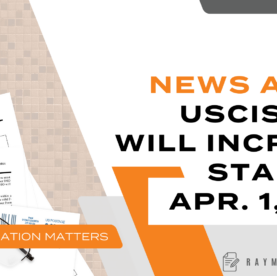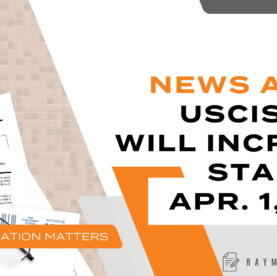CBP Announces 90-Day Postponement of Import Duty, Tax, and Fee Payments for COVID-19 Impacted Businesses

On Sunday, the U.S. Department of Homeland Security’s Customs & Border Protection (CBP) announced that President Donald J. Trump signed an Executive Order that allows CBP to grant a 90-day postponement of certain duties, taxes, and fees that would have otherwise been due to CBP by importers across the United States. In the Temporary Final Rule implementing the Executive Order, CBP noted that, due to the COVID-19 pandemic,
local, state and national restrictions have forced the closure of offices of the importing community and those businesses have limited their operations and procedures. Many importers of record will be receiving diminished or no revenue during this time while still incurring costs, including the duties, taxes, and fees associated with imported merchandise for their clients and supply chains. Aggravating matters, many major retail chains and other businesses are closing for business—either voluntarily in response to the President’s call or following state or local government requirements. As a result, many importers of record are undergoing significant financial hardship with operations fully or partially suspended during March or April 2020 due to orders from competent governmental authorities imposing limits on commerce, travel, or group meetings because of COVID-19.
Moreover, many importers are “having difficulty authorizing payments for duties, taxes, and fees on imported merchandise,” with employees “having difficulty getting to work or are having technical issues with working remotely, making it difficult to contact the individuals responsible for the release of funds, which is leading to delays in payments of duties, taxes, and fees.”
To alleviate these issues and the immediate cashflow pressures that importers are facing during the current economic crisis, CBP amended the Code of Federal Regulations to add Section 24.1a to Title 19 to “temporarily postpone the deadline for importers of record to deposit certain estimated duties, taxes, and fees that they would ordinarily be obligated to pay as of the date of entry, or withdrawal from warehouse, for consumption, for merchandise entered in March or April 2020, for a period of 90 days from the date that the deposit would otherwise have been due but for this emergency action.” Moreover, Section 24.1a, Title 19 of the Code of Federal Regulations provides that “no interest that would otherwise accrue upon such estimated duties, taxes, and fees will accrue during the 90-day postponement period.”
Who Can and How Can You Postpone Customs Payments?
The Temporary Final Rule requires importers seeking to postpone import duties, taxes, and fees to demonstrate “a significant financial hardship.” To establish this, an importer must establish the following:
- That, the importer’s operation are fully or partially suspended during March or April of 2020 due to orders from a competent governmental authority limiting commerce, travel, or group meetings because of COVID-19; and
- As a result of such full or partial suspension of operations, the gross receipts of such importer for March 13-31, 2020, or April of 2020 are less than 60% of the gross receipts for the comparable period in 2019.tax
An importer who wants to postpone payments is not required to provide evidence supporting each prong to be eligible for relief but should note any respective entry documents and must maintain the supporting documentation as part of the importer’s books and records for inspection by CBP, upon request.
What Payments Cannot Be Postponed?
The temporary postponement of import duty, fee, and tax payments are inapplicable to other CBP payment deadlines, such as those related to bills for duties, taxes, fees, and interest deemed owed through liquidation or reliquidation, payment of liquidated damages, as well as antidumping and countervailing duties.
To learn more about this blog post or if you have any other immigration concerns, please feel free to contact me at rglahoud@norris-law.com or (484) 544-0022. For other topics related to COVID-19, visit our Coronavirus Thought Leadership Connection.
The information contained in this post may not reflect the most current developments, as the subject matter is extremely fluid and constantly changing. Please continue to monitor this site for ongoing developments. Readers are also cautioned against taking any action based on information contained herein without first seeking advice from professional legal counsel.





